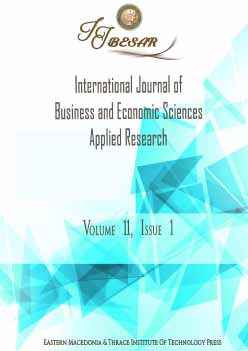What do we really know about the Transatlantic Trade and Investment Partnership: facts versus myths? Trying to Understand Social Expectations
What do we really know about the Transatlantic Trade and Investment Partnership: facts versus myths? Trying to Understand Social Expectations
Author(s): Joanna Działo, Bogna Gawrońska-Nowak, Ziemowit StańczykSubject(s): Economy, Supranational / Global Economy, International relations/trade
Published by: Τεχνολογικό Εκπαιδευτικό Ίδρυμα Ανατολικής Μακεδονίας και Θράκης
Keywords: Transatlantic Trade and Investment Partnership; social expectations towards TTIP; CGE models; macroeconomic effects of TTIP; NAFTA agreement;
Summary/Abstract: Abstract: Purpose: The purpose of this work is to confront the social expectations of the TTIP, and how it effects the so-called "expert knowledge". Defining a mismatch between the social expectations and expert knowledge may contribute to better understanding of the controversies related to the TTIP. Using the NAFTA case study, we investigate if there is a significant gap between ex-ante and ex-post analysis of the Free Trade Agreement (FTA).Design/methodology/approach: We rely on Eurobarometer (2014, 2015) and Bertelsmann Foundation (2016) surveys to describe the TTIP-related social expectations. We make a critical overview of the global CGE models, which are the main source of ex-ante estimations of TTIP macro effects. We also use the NAFTA case study as a TTIP reference point that allows for a comparison of ex-ante with ex-post analysis results. Findings: Social expectations regarding the economic effects of the TTIP are ambiguous on both sides of the Atlantic. The CGE models have many limiting assumptions. They are, however, a useful tool for exploring the effects of the TTIP, bearing in mind all restrictions and limitations of ex-ante analyses. The NAFTA case study indicates that most ex-ante models tend to overestimate benefits and underestimate disadvantages arising from free trade. Research limitations/implications: Many such surveys have been conducted recently. The results should be developed upon, for a more detailed, country-specific and time variant understanding of possible sources of social conflicts in the context of the TTIP (or FTA) implementation. Originality/value: The analysis tends to prove the existence of a mismatch between social and expert knowledge on the TTIP, which may result in generating social conflicts. A practical and original outcome of our work is a well-supported recommendation to make the TTIP realistic effects much more transparent to the public, which should be important to those supporting the TTIP (and generally speaking FTA).
Journal: International Journal of Business and Economic Sciences Applied Research (IJBESAR)
- Issue Year: 11/2018
- Issue No: 1
- Page Range: 52-60
- Page Count: 9
- Language: English

